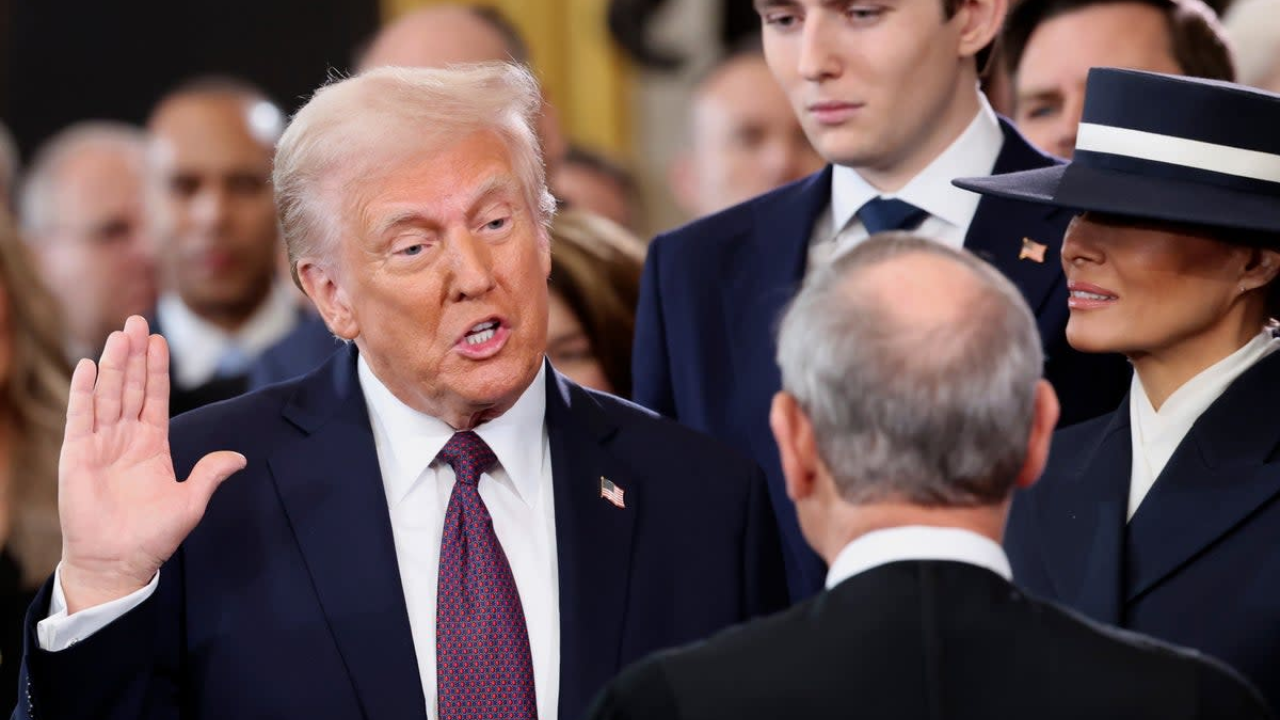In just a few months, President Donald Trump has managed to pressure several traditionally powerful “elite institutions” into complying with his demands, creating what some are calling a “Great Grovel.”
Politico reporters analyzed this phenomenon in a Monday report, explaining how Trump has achieved this compliance.
Trump has forced tech billionaires who previously criticized him to donate to his inaugural fund, pressured law firms that represented anti-Trump clients to change their policies, and even pushed news networks to settle lawsuits related to MAGA that experts had dismissed as baseless.
Additionally, he’s convinced prestigious universities, where protests against him were common, to crack down on student dissent.
These moves show that Trump is successfully commanding the obedience of institutions that frustrated him during his previous term.
However, not all of these organizations have been willing to bend to his will. Many are fighting back, and there is internal frustration within the institutions that have capitulated. Despite this, experts believe that Trump’s success this time is no coincidence.
One reason for his success is that these large institutions, which rely on federal funding, have vulnerabilities that Trump can exploit.
Another factor is that their leadership, despite opposition from within, believes that placating Trump might allow them to return to normal operations.
But the deeper issue is that Trump has been attacking these organizations one by one, preventing any coordinated resistance.
As Politico’s report notes, Trump’s targets have often found themselves isolated. Universities, for example, have not worked together to oppose his actions at Columbia or other campuses.
The Associated Press’s removal from the White House pool sparked outrage from other journalists, but news organizations mostly continued with business as usual.
Similarly, major law firms have not issued any collective statements condemning Trump’s actions against their industry colleagues.
This has created a significant “collective action problem,” as individuals and organizations look out for their interests rather than uniting against Trump.
Mary Spooner, a former attorney at Paul Weiss, summed it up: “If businesses and other sectors don’t stand up to resist Trump’s increasing power, he will continue to wield it. It becomes much harder to oppose him when each organization is forced to do so on its own.”
Disclaimer- Our team has thoroughly fact-checked this article to ensure its accuracy and maintain its credibility. We are committed to providing honest and reliable content for our readers.






